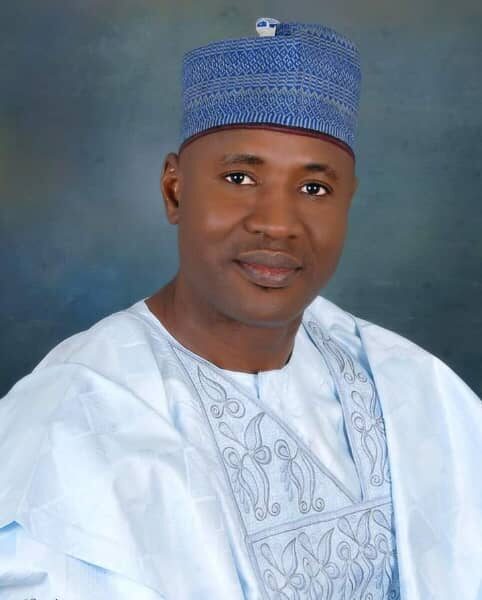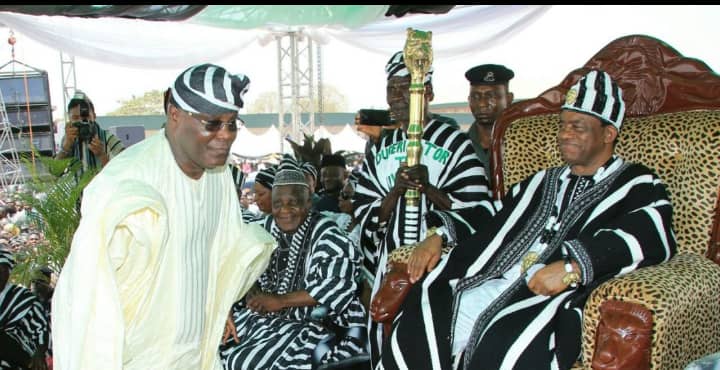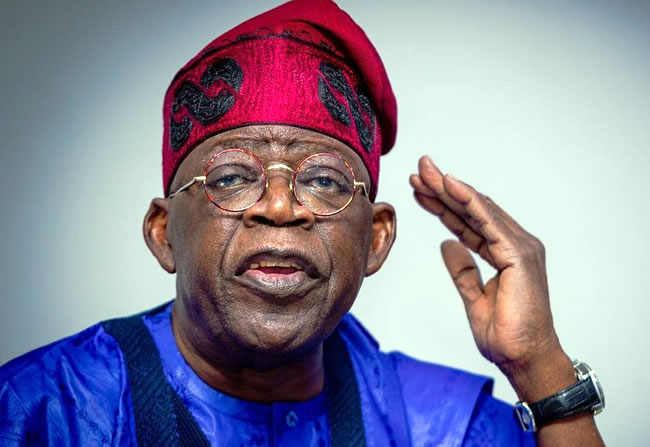By Maliki Salaudeen
Formerly, a visible elected member of the Adamawa State House of Assembly representing one of the constituencies in Hong Local Government, Wafari Theman served between 2011 and 2015 on the platform of the defunct Action Congress of Nigeria (ACN) which later transformed into the All Progressives Congress (APC) . He thereafter defected to the party, and later served as its State Secretary in Adamawa prior to the 2023 general election, where he indicated interest to grab the top job in the state, but unfortunately came a distant second to the last among his fellow Governorship aspirants of their party.
Since then to date, he had embroiled himself into needless stories of failed promises and pledges he is fond of making during contributions in his local church, and even his community Association both in the nation’s capital, and beyond. At almost all functions where he happen to be present, possibly to show off as someone who had once reached a level of affluence or influence in the recent past, Wafari Theman has been a burden not only to himself as a politician, but to many people he associates with at all levels of socialisation.
This attitude has continued for some time now, so much so that people no longer invite him to public gatherings where he will make unfulfilled pledges, an attitude with which he has been known up till the last time he was relieved of his job as Chief Scribe of the APC, and subsequently crashed out at the last Governorship primaries of his former party.

Ostensibly to massage his over -bloated ego, Wafari Theman again jumped ship and took his low rating baggage to join the Social Democratic Party (SDP) as its Vice Chairman in the North East late last year.
When his closeness to the immediate past SGF lasted, he was then referred to as the ‘star boy’ in the corridors of power- by the many ‘favour seekers’ of the past administration who saw him then as having the ears of the then SGF, not known to them that all those his bragability were just mere fluke. By then, he was the self-acclaimed Special Assistant on Domestic Affairs to the past Secretary to The Government of The Federation. But that marriage of convenience according to impeccable sources, did not last long. For it was alleged that his activities around the former SGF were more or less beneficial only to himself(Wafari Thenan) and few of his friends and family members at the detriment of his then Principal.
Even before the end of that tenure in reference. there were allegations that he had since soiled his hands in certain untoward and adverse activities around the former SGF which reportedly brought about a misunderstanding and a resultant wedge between him and his Principal on one hand and also between him and other family members of his Principal on the other, an event which was believed to have scuttled his chances of even measuring up to a reasonable position in his party’s governorship ambition in 2023, and his unceremonious removal from office as the coordinating officer incharge of RIFAN, a CBN agricultural scheme for farmers in Adamawa state.
Alluding to his incompetence and alleged misconduct in handling trust matters during his short stint as APC Secretary and RIFAN in his home state, Wafari Theman got his fingers burnt in the process, which may have resulted in his sour relationship with the former SGF, coupled with his distant performance during the 2023 party primaries, and his consequent defection to the SDP that same year, immediately after failing to make it in a party he coordinated as Secretary for no fewer than four years in the saddle.
On credit worthiness, transparency and uprightness (the state of being honest, honourable and moral) Wafari Theman who claims to be an Evangelist, has after all no respect for the sanctity of truth and the fear of God in his dealings with people in the society.
Transparency and uprightness means nothing to him. Without fear of contradiction, I can boldly say, his life doesn’t epitomise honesty and morality, despite his evangelical training from a Pastoral academy. His so called sanctimonious preachments are called to question on issues of this nature.
As if some of the trust issues raised against him above are not enough, Wafari Theman recently engaged the services of one of our senior colleague journalists to specially put together for him(Wafari) an image laundering write up for an agreed fee, in preparation for his second attempt to contest for the office of Governor under the SDP in Adamawa come 2027. In his written proposal to the journalist in reference, a copy of which I obtain, he even requested for a budget/calendar, a timeline within which the job would be completed. The journalist in a written reply through WhatsApp message, a copy of which is also in my custody, gave a time line of two weeks within which to finish the job. The WhatsApp message also contains the amount charged for the job, payable after submission of the written work accordingly.
But alas, while the said job was successfully accomplished and handed over to him within the stipulated period of two weeks promised by the journalist(to be precise on July 1st, 2024) Wafari Theman in his usual characteristics has since rebuffed all entreaties to fulfill his own part of the bargain, up to today that you are reading this piece. All entreaties through his close allies to pay our colleague for his sweat, has always been met with the brick wall, despite several pleadings in addition to periodically meeting him one on one in his Abuja office at Adamawa Plaza in the Central Business District.
On this issue, Wafari Theman has continued to make himself too busy, and too important to respond to calls and text messages our colleague has been sending to him, to be responsible enough and pay the money owed him, but all to no avail.
But he should know by now that, since our colleague has accomplished the job given, sealed and delivered payment of his entitlement is obligatory and unavoidable. Mr Theman can only buy time on this matter, but cannot escape it since our colleague is not the one who lobbied for this assignment, it is (Wafari’s) initiative.
And so, Wafari Theman will do himself a lot good and honour to pay for the already accomplished task, unless he chooses to drag his personality and image in the mud on this.
But in an event he claims ignorant about this contractual agreement between himself and the journalist in reference, let him in all honesty answer the following questions:
1. Did he really engaged the services of one journalist to do a PR job for him in readiness for the forthcoming 2027 Governorship election in Adamawa?
2. Was the completed job handed over to him on 1st July 2024?
3.If answers to these questions are in the affirmative, why then has he failed to pay for the completed job he assigned somebody to do for him?
It beats my imagination to discover some so called political elites who carry themselves along as leaders, yet their attitudes toward others portray them as deficient in character and good morals. The attitude demonstrated by Mr Theman in the aforementioned incident speak volumes and unbecoming of his status as someone who dreams to lead other people in a political office.
While I was brooding on this Wafari Theman attitude, I could not fathom what kind of political leaders we have in our midst. From the above scenario, it appears some of our so called leaders usually wake up in the morning to take any decision they think is good for them without making responsible, respectful, and wide consultations.
Ordinarily, Wafari Theman would have asked himself even before joining the Governorship race from his home state in 2023, not to talk of his wild dream for 2027, if he had the pedigree, transparency and credentials to seek the plum job in the first place?
On him, the question on the lips of many constituents has been, is this the kind of Governor with a niche for ‘double speak’ and ‘moral bankruptcy’ the people of Adamawa will bargain for as their Governor?
Maliki Salaudeen, a public affairs commentator sent this piece from Lokoja, Kogi state.




